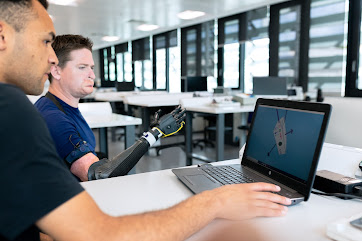AI and Cybersecurity: Strengthening Digital Defenses
In today's interconnected world, where technology has become an integral part of our lives, the need for robust cybersecurity measures has never been more critical. As cyber threats continue to evolve and grow in sophistication, organizations and individuals are turning to innovative solutions to safeguard their digital assets. One such solution gaining prominence is Artificial Intelligence (AI). In this blog post, we will explore the role of AI in cybersecurity and how it is strengthening our digital defenses against emerging threats.
The Rising Tide of Cyber Threats
The digital landscape is teeming with cyber threats, ranging from malware and ransomware attacks to phishing scams and data breaches. These threats can cause significant financial losses, reputational damage, and privacy violations. Traditional security measures often struggle to keep up with the rapidly evolving threat landscape, making it imperative to embrace advanced technologies like AI.
AI-Powered Threat Detection
AI offers powerful capabilities in identifying and mitigating cyber threats in real time. Machine learning algorithms can analyze vast amounts of data, including network traffic, user behaviour, and system logs, to detect anomalies and patterns indicative of malicious activities. By continuously learning from new data, AI systems can adapt and improve their threat detection capabilities, staying one step ahead of cybercriminals.
Intelligent Security Analytics
AI-driven security analytics enables organizations to gain deeper insights into potential vulnerabilities and proactively identify risks. AI algorithms can analyze massive volumes of data from various sources, including threat intelligence feeds, security logs, and user behaviour, to identify suspicious patterns and indicators of compromise. This allows security teams to prioritize and respond to threats more effectively, reducing response times and minimizing the impact of attacks.
Automated Incident Response
AI-powered cybersecurity solutions also streamline incident response processes. By automating routine tasks, such as threat triaging, data collection, and incident analysis, AI frees up valuable time for security professionals to focus on critical tasks. Automated incident response can help accelerate threat containment, reduce human error, and enable faster recovery from security incidents, bolstering overall cybersecurity resilience.
Adversarial Machine Learning
While AI enhances cybersecurity, it's important to address the potential risks associated with adversarial machine learning. Cybercriminals may attempt to exploit AI systems by crafting attacks specifically designed to evade detection. To counter this, researchers are developing robust defences, such as adversarial training and anomaly detection techniques, to ensure AI models remain resilient against emerging threats.
The Human Element
While AI plays a crucial role in cybersecurity, human expertise and decision-making remain paramount. Cybersecurity professionals provide domain knowledge, context, and critical thinking necessary to interpret AI-generated insights and make informed decisions. Collaborative efforts between AI systems and human analysts create a powerful synergy that fortifies our defences against cyber threats.
Final Thoughts
AI is transforming the field of cybersecurity, equipping organizations with advanced tools to combat the ever-evolving threat landscape. From threat detection and intelligent analytics to automated incident response, AI empowers security teams to strengthen their digital defences and safeguard critical assets. However, it is crucial to recognize that AI is not a panacea and must be combined with human expertise and continual research to stay ahead of cybercriminals. By embracing AI as a valuable ally in our cybersecurity efforts, we can build a safer and more resilient digital world for everyone.




The points in this article really resonate - AI is changing the way we approach cybersecurity. I recently saw unusual activity on a project, and it was a clear reminder of how quickly threats can evolve. Reading this, I realized platforms like Elevate can really help users stay aware of risks and respond more effectively.
ReplyDeleteNice https://www.bloggpt.co.uk/2023/08/ai-and-cybersecurity-strengthening.html
ReplyDeleteNIST's highest level of identity assurance, known as IAL3, serves as the solution to today's most sophisticated attacks. This level requires live, supervised proofing processes involving document verification and device camera live biometric comparisons to detect deepfakes, AI impersonation fraud, laptop farm fraud and more. Get detailed information on NIST IAL3 verification by clicking here or visiting our site.
ReplyDelete